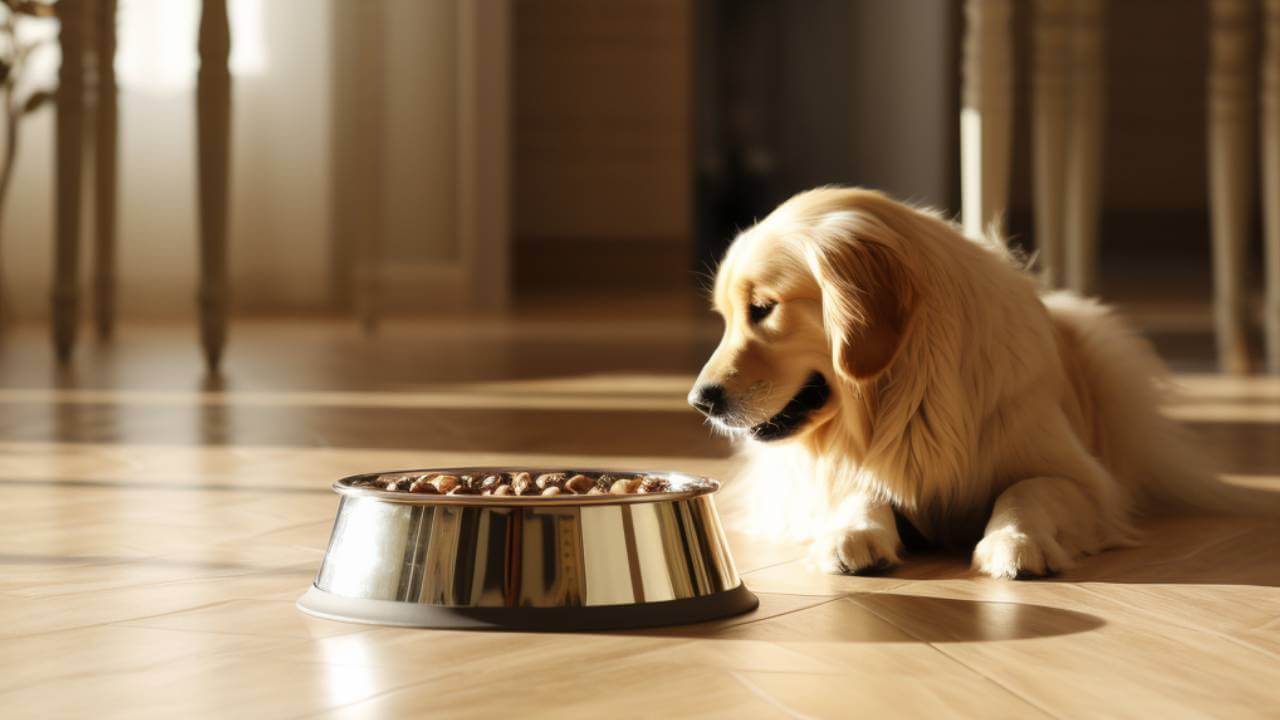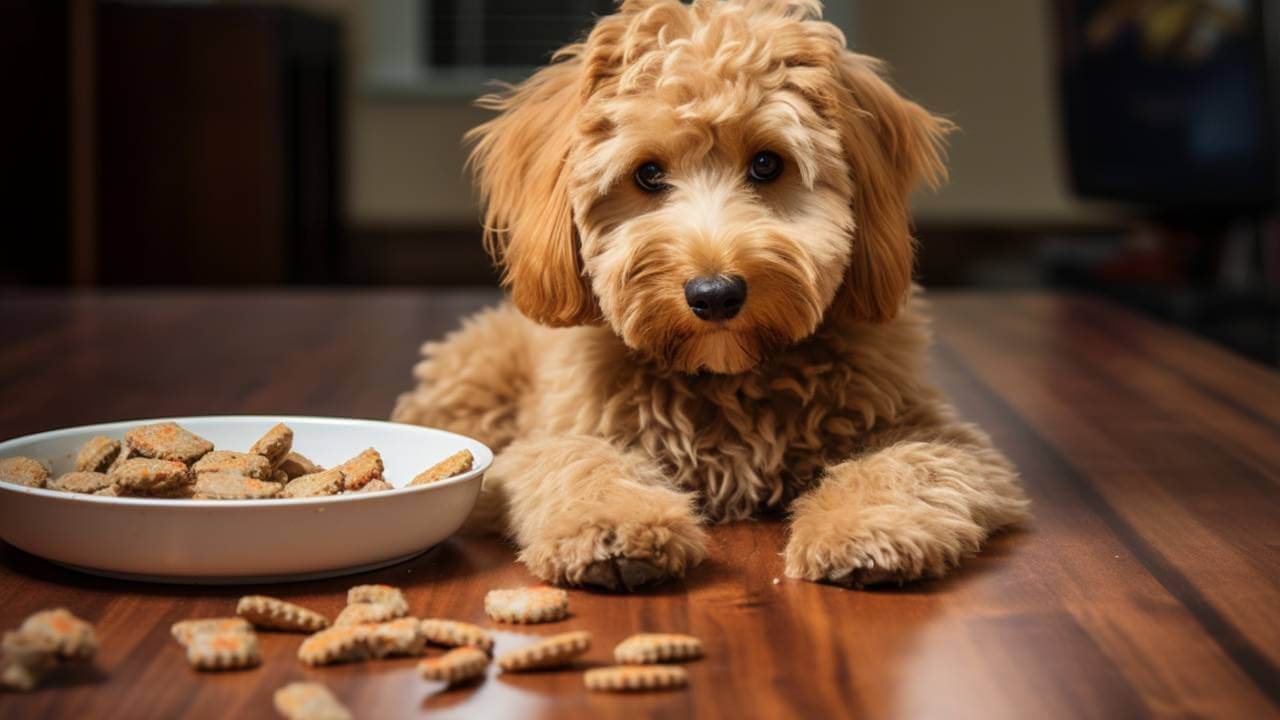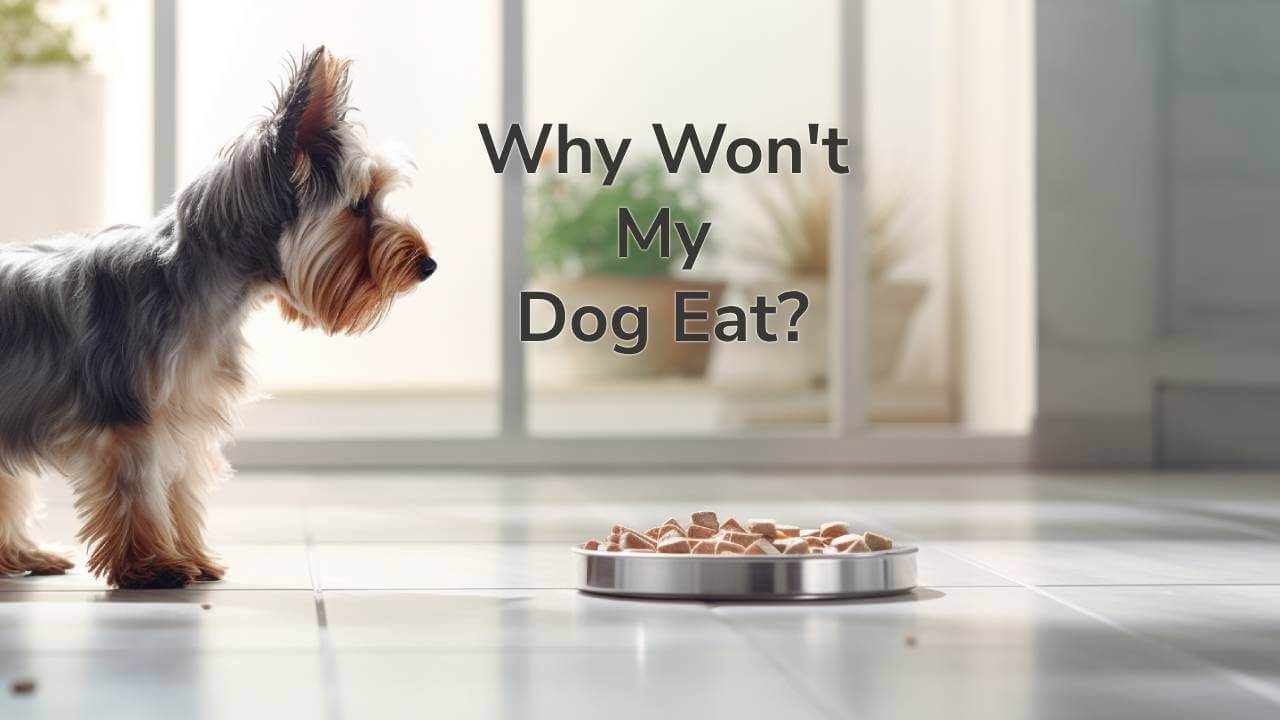Hey there, fellow dog lover! You’re not alone if you’ve ever scratched your head while watching your usually ravenous dog give their food the cold shoulder.
It’s a head-scratcher: “Why does my dog not want to eat?” Grab a treat (or a coffee) and dig into this kibble conundrum together!
Understanding the Doggie Dilemma
Picture this: You lovingly place your pup’s bowl down, and instead of the usual food frenzy, you’re met with a half-hearted sniff and maybe a nibble or two before they saunter away. Is something up?
Is their taste palate suddenly upgraded to gourmet? Not so fast! Let’s run through some potential reasons behind this puzzling behavior.
1. Health Matters, Woof!
Alright, let’s get serious. Just like us, our furry friends can have health hiccups. Dental issues, tummy troubles, or even an underlying health problem might be causing your pup’s appetite to play hide and seek. If this “meh” attitude towards food sticks around for over a day, it’s time for a doggy doctor visit.
Remember, our fur buddies can’t tell us when something’s wrong, so watching out for changes in their eating habits is key to spotting potential health issues.
2. Stress Busting Their Appetite?
Guess what? Dogs are stressed, too. Changes in their comfy routine, a new fur sibling, or thunderstorms that turn them into quivering fluff puddles could dampen their dinner enthusiasm. Setting up a serene space for them to munch might do the trick.
Imagine trying to eat your favorite meal while there’s chaos all around – not the most appetizing, right? Our furry pals are just as sensitive to their environment.
3. Food Fight!
Would you be thrilled if your morning cereal suddenly turned into broccoli? Neither would your pup. A sudden switch in their chow, new ingredients, or the latest fad diet could make them stare at their bowl like it’s an alien artifact.
Slowly introducing changes can save the day. Dogs might not be the best at expressing their opinions on your latest culinary experiments, but their “no thanks” response might be their polite way of saying, “Stick to the classics, please!”
4. Weather Woes
Hot summer days or chilly winter nights can play tricks on their appetite. Imagine scarfing down a burger when it feels like the Sahara or Antarctica outside. Yeah, it’s not so tempting. Adjusting meal times and keeping them hydrated is a smart move. Just like we crave lighter meals in the heat and hearty stews when it’s chilly, our four-legged pals are also influenced by the weather.
5. Aging Ain’t Always Appetizing
Like how we get less excited about roller coasters as we age, senior dogs might not jump for joy over food like they used to. Their metabolism takes a chill pill, and dental issues might make crunching painful. Tailoring their meals to their age and providing dental care is golden.
We all know that our dietary preferences change as we age, and our pups are no exception. Extra care and attention to their changing needs can go a long way.
6. Menu Moodiness
Ah, the picky eaters’ club. Your dog may be holding out for something tastier – a higher-stakes treat or a sneak peek at your dinner plate. Tempting as it is to give in, staying consistent with their doggy diet is the way to go.
Imagine if your dog could talk – they’d probably say, “Come on, a slice of that juicy steak would be so much better!” But as the responsible parent, it’s up to you to stick to their balanced and nutritious meals.

Fetching Their Appetite Back
We’ve got the scoop on why your pup might skip meals like a diet pro. But how can you entice that adorable sniffer back to their bowl?
1. Vet Visit Victory Lap
If this appetite dodgeball game lasts more than a hot minute or comes with other worrisome symptoms like bellyaches or snooze marathons, consult the vet. Health first, always!
You know the saying, “Better safe than sorry”? Well, it’s the mantra to live by when it comes to our furry companions. A quick check-up can put your worries to rest.
2. Routine Magic
Dogs are the original routine junkies. Stick to consistent meal times and routines. Familiarity equals comfort, even in the world of kibble. Our canine buddies thrive on predictability.
Just think about how they get excited before walk time because they know it’s part of their routine. The same goes for mealtime. When they can expect their meal, it reduces stress and uncertainty.
3. Top-Notch Tummies Deserve Top-Notch Tuck-Ins
Remember, quality counts. Invest in high-quality dog food that covers all their nutritional needs. If you’re revamping their menu, introduce changes step by step.
Would you settle for subpar ingredients in your meals? Of course not! Our pups deserve the same consideration. High-quality dog food gives them the proper nutrients and energy to stay healthy and active.
4. Sprinkle Some Yum
A sprinkle of cooked chicken, a dash of lean meat, or a dribble of low-sodium broth can jazz up that bowl. But easy on the extras – we’re aiming for balance here. Think of it as adding a pinch of seasoning to your meal to make it more exciting.
However, like too much salt can spoil a dish, too many extras can upset your dog’s tummy or disrupt their balanced diet.
5. Zen Zone, Please
Turn mealtime into their little oasis. Create a peaceful dining area where they can chow down without distractions or stressors. Imagine trying to eat with loud noises or constant interruptions – it’s not fun, right? The same goes for our pups.
Creating a calm and serene environment during mealtime helps them focus on the task – enjoying their food!
6. Play Date with the Leash
Get them moving! A fun play session or a stroll can trigger their appetite. And hey, it’s a win-win – more quality time with your furball!
Remember, dogs are like us when working up an appetite. After a good workout, you’re more likely to dig into your meal with gusto. So, throw that ball, go for a jog, and watch your pup’s appetite bounce back.
7. Tooth Fairies Exist for Dogs Too
Remember their pearly whites. Dental problems can bite into their appetite. Regular dental care is a must for those wagging tails. Imagine eating with a toothache – not a pleasant thought, right?
Our furry friends are just as sensitive when it comes to dental discomfort. Keeping their teeth healthy makes mealtime enjoyable and contributes to their well-being.
8. Treat Truce
Watch out for sneaky treats and table scraps that fill them up before mealtime. Less treat indulgence, more meal enthusiasm. Imagine snacking on chips before dinner – you’d probably have less room for the main course. The same goes for our pups. Treats are great but should complement their meals, not replace them.

In a Nutshell, Woof’s the Scoop?
There you have it, a puppet’s palette of why your dog might be giving side-eye to their meal. Remember, a dog’s appetite can be as fickle as our taste in movies. While an occasional eating slump isn’t a paw-positive sign, it might be a passing phase.
But if your fur-friend starts playing the no-eat game regularly, it’s detective time. Vet check, routine respect, and a sprinkle of doggy love – that’s the recipe for a happy, hearty hound!
Mealtime Musings
So, the next time you wonder, “Why does my dog not want to eat?” remember that your pup’s appetite is a complex puzzle with various pieces. Each situation calls for a tailored approach, from health concerns and stress to picky preferences; just as we have our off days when we skip meals or crave comfort food, our dogs, too, experience fluctuations in appetite.
You’ll navigate the culinary labyrinth of your dog’s appetite with confidence and care by staying attuned to their cues, maintaining a consistent routine, and ensuring their health and happiness.

FAQs
Why is my dog suddenly refusing their favorite food?
Sudden appetite changes might be due to an underlying health issue. Your dog could be experiencing dental pain, gastrointestinal discomfort, or stress. Consult a vet if the behavior persists.
Can changing the feeding location help my dog eat better?
Absolutely! Choosing a quiet and calm meal spot can reduce stress and distractions, encouraging your dog to eat more enthusiastically.
My dog is a senior. How can I adapt their diet to their age?
As dogs age, their metabolism slows down. Opt for senior-specific dog food that caters to their changing nutritional needs. Additionally, consider softer or moist food options to accommodate potential dental issues.
Are homemade meals a good idea to entice my dog to eat?
While adding a little home-cooked goodness can work, be cautious about maintaining a balanced diet. Consult your vet before making any significant changes to your diet.
How can I tell if my dog is stressed or anxious about their meals?
Watch for signs like excessive panting, pacing, whining, or avoiding the food bowl altogether. Addressing the source of stress can often restore your dog’s appetite.
Can I use toys or puzzles to make mealtime more engaging for my dog?
Absolutely! Puzzle feeders and food-dispensing toys can turn mealtime into an enjoyable mental and physical activity, boosting their interest in food.
My dog is a picky eater. Can I mix in human food to entice them?
While tempting, too many human food additions can upset your dog’s balanced diet. Use moderation and stick to safe, dog-friendly options like plain cooked meats or vegetables.






Your article gave me some ideas to try